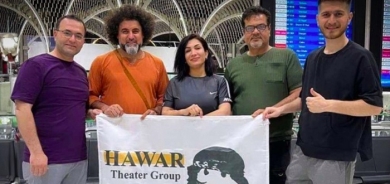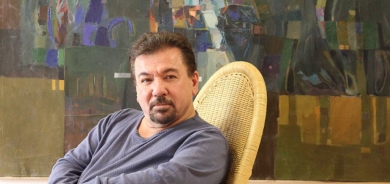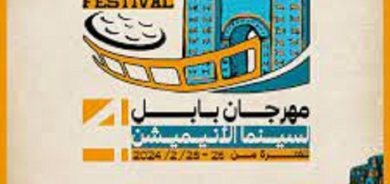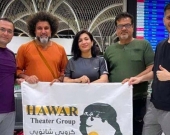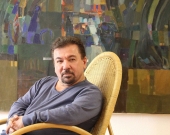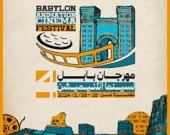Kurdish composer: ‘without music no culture can survive’

Last week, the Kurdistan region was treated to a symphonic extravaganza sponsored by the Rudaw Media Network.
Under the title of “A Day of Solidarity with Shingal,” the two choral and symphonic works, Shingal and Peshmerga were performed in Sulaimani, Erbil, and Dohuk in support of Kurdish forces and the Yezidi victims of the Islamic State, or ISIS.
The works were the inspiration of Kurdish violinist and composer Dalshad Said, a Dohuk native who now teaches music in Austria.
Said, 57, is a well-known expert on traditional music but is also considered to have had great influence on contemporary Kurdish music.
After studying music at the Institute of Fine Arts in Baghdad, he worked as assistant conductor at the Baghdad television and radio orchestra.
In 1984, he continued his studies in music at the University of Wales and received his MA degree in 1988. Said also has a diploma as a solo violinist from the Royal Academy of Music, London.
He says his two recently debuted symphonic and choral works - Shingal and Peshmerga – are his most significant musical achievements.
Said spoke with Rudaw’s Arina Moradi on August 6 about his experiences, influences and advice for Kurdish musicians.
RUDAW: In your experience, how do people in West feel about Kurds and Kurdistan, in general, and can Kurdish music improve their opinion?
DALSHAD SAID: In Europe, even the Kurds themselves remain largely unknown, not to mention their music. Generally, only politicians and intellectuals know who the Kurds are. So it is such a small number of people who might know Kurdish music.
Unfortunately, it is since the ISIS war and through the Shingal case that Kurds and Peshmerga are to some extent known by people in West.
What inspired you to link your works - Shingal and Peshmerga - with the ongoing struggle in the Kurdistan region?
The idea of these two works came far earlier, before the recent events in Kurdistan. The original theme behind Shingal was the 2007 attack against the Yezidi community in Shingal. But the works were enhanced after the recent ISIS attack on Shingal in 2014 and the ongoing Kurdish struggle with the radical group.
How would you describe the three recent performances here in the region? How was the work received?
I had suggested to our sponsor, Rudaw Media Net, to hold the premier on August 3 in one of the Kurdistan provinces: Sulaimani, Erbil or Duhok. But they wanted the premier to be shown in all three places. I was kind of concerned about showing the works three times. First, because a premier is often a one-time event, and second because it wasn’t a live concert so I was not sure how the audience would receive the works.
We ended up showing the works in the three provinces and, to be honest, the audiences in Sulaimani, Erbil and Duhok, all received the works very well.
It was even beyond my expectation especially because it was a premier and not a live concert.
Why a premier and not a live concert in Kurdistan?
My goal was to perform the two symphonic and choral works of Shingal and Peshmerga live in Kurdistan. But because of the large number of musicians working on this project and especially due to the current situation in Kurdistan, it was so difficult to have them here.
During my trip, however, we have talked about a live concert in the future. It is my dream.
Tell us about your experience with the first musical instrument you received.
Because I was living in a remote area, there was no instrument even to buy. That is why I invented my own instruments over the course of five to six years. For the first one, I used razor blades. When my father saw it, he told me “You will be a musician one day.”
Later, I made another instrument using the wire cover of a fan because they were thin and large I could play some tunes on it. Besides those two, I could also perform some music notes on the small toy piano my uncle gave me when I was 7 or 8.
I was 11 when I have got my first real instrument: an oud that I could play some Eastern music with.
What do you think about Kurdish music at present?
Globalization has had both negative and positive impacts on the world’s culture and music. I believe its negative influences are greater than the positive ones. Of course, this is not something specific to the Kurds. Global music attracts people especially youths all around the world, which is not necessarily negative. But traditional and folk music need to stay alive as well.
We, the Kurds who want to build our own state in the future, need to protect our language and culture. An important element of culture is music, so we need to protect our folk music.
Without culture and language no nation can survive.
What is your favorite Kurdish song? Artist?
I like Kurdish classic and folk music. The Kurdish classic artists have a great style of highlighting nature throughout their works.
Has Western music influenced your work? How so?
Definitely. My works from the very beginning were a mix of styles. When I was 18, I used piano and violin to create a piece of music called Shivan, which was my first work of a mixted style.
From the list of my works with both Kurdish and Western elements performed by violin, I can mention the Mala Gulan li nav razê (The House of Flowers in the Garden), which became well-known in Iraq. This one, like others, has Kurdish elements, but I have done it in a modern way.
The elements of Western music have slowly expanded in my works. The symphony Hanging Garden is a piece I have worked on after I studied Western music in Britain, so you can clearly see the influence.
Finally, in my latest works of Shingal and Peshmerga, I believe everyone can feel how Western music is mixed with the soul of Kurdish music. However, I would like to remind you that the Western elements of my works have never erased the essence of Kurdish music.
You have worked with 13 Kurdish singers in Shingal and Peshmerga. What are the differences between Kurdish singers from all four parts of greater Kurdistan?
Each parts of Kurdistan have its own style and dialect. Besides the characteristics each singer represents from their region, the artists have their own unique voices as well. I believe the participation of each one of them enriched the works.
How did you select the artists you ended up working with?
Two or three were suggested for this work. I have selected the rest becasuse I knew the Kurdish singers’ works and talents. But something was very essential in choosing the artists: they needed to hold a European passport for the sake of easy travelling to perform the works in Prague. I mean, surely, there were qualified singers inside Kurdistan, but travelling to Europe was difficult for them.
How do you handle possible mistakes during a live performance?
It could happen everywhere and by everyone. During my final test at the Royal Academic London, where I received my diploma, in the middle of the piece I performed mistakenly for five to 10 seconds. The piano was playing with me, I didn’t know what I was doing and even until now I don’t know what I was performing. I want to tell Kurdish musicians, in general, that at that time I thought, “That is it and that I failed.” Yet, I didn’t stop and went back to rhythm and for the rest of the 45 minutes I performed with no mistake.
When they gave me the certificate with a high score, I asked why and reminded them about my mistake. They said everything can happen during a performance but the way I could handle the mistake and continue in the performance turned out a positive result for me.
After recording the two great symphonic works of Shingal and Peshmerga, what are you planning next?
My own plan is to finish a piece I am working on. But, after hearing the two works in Kurdistan, many sides, especially Rudaw and even the government, suggested further national pieces, which will be directly related to the Kurds especially now that we have a tangible enemy to deal with.
I have postponed my PhD studies for a long time because of the major projects that were more significance for me. But now I have to think carefully about what my priorities are.
What advice would you give to young Kurdish musicians who are nervous about their future?
Work hard, and work for the sake of music alone.
Rudaw




